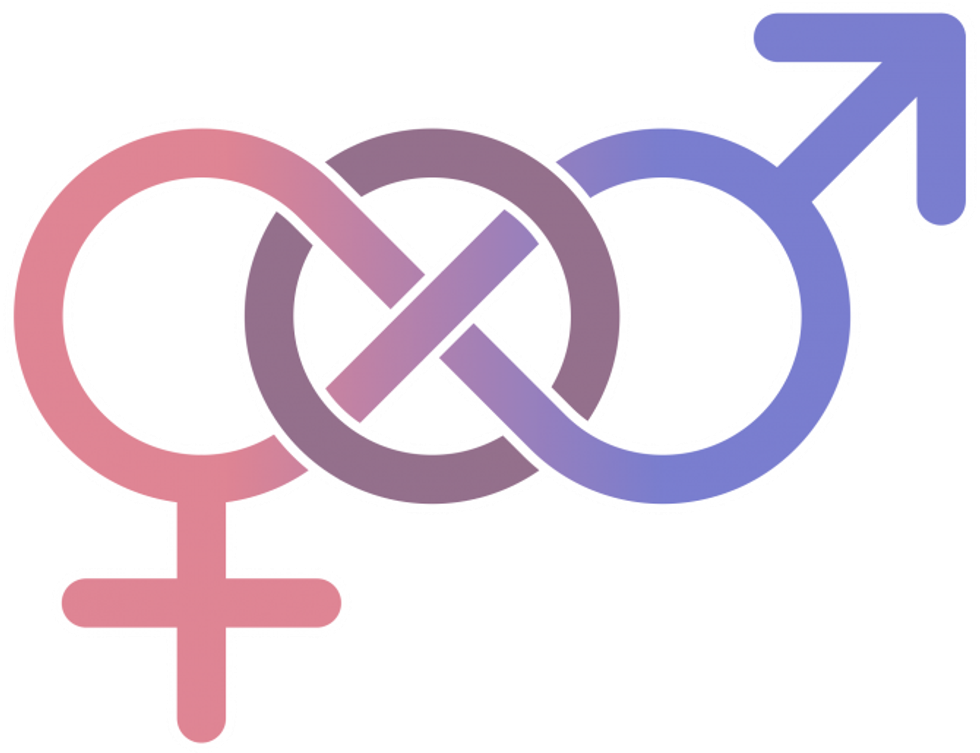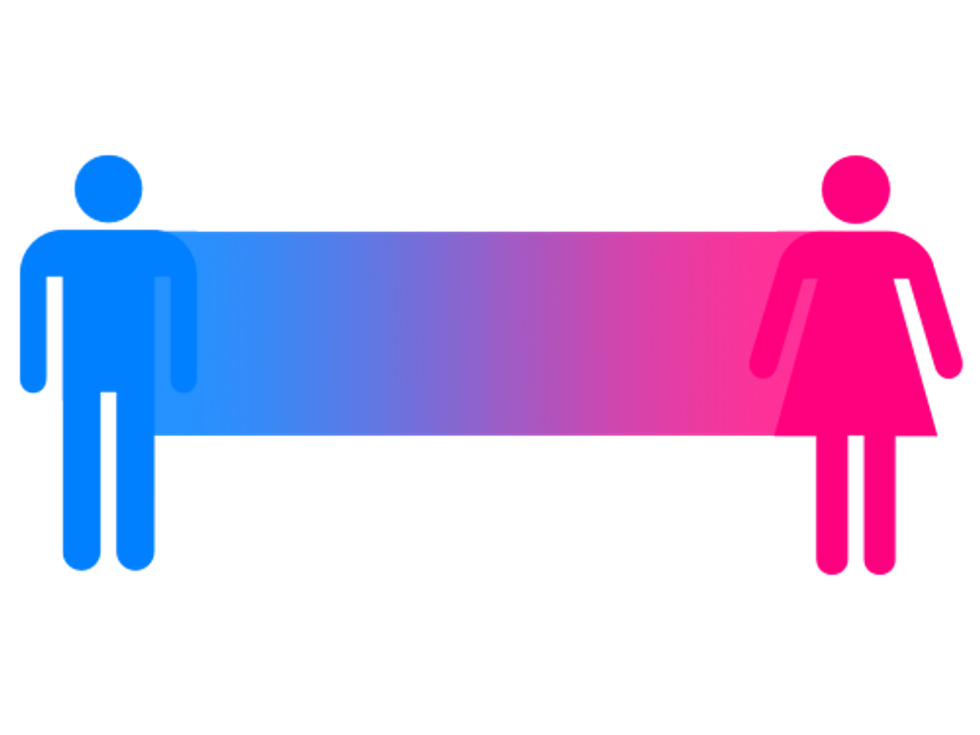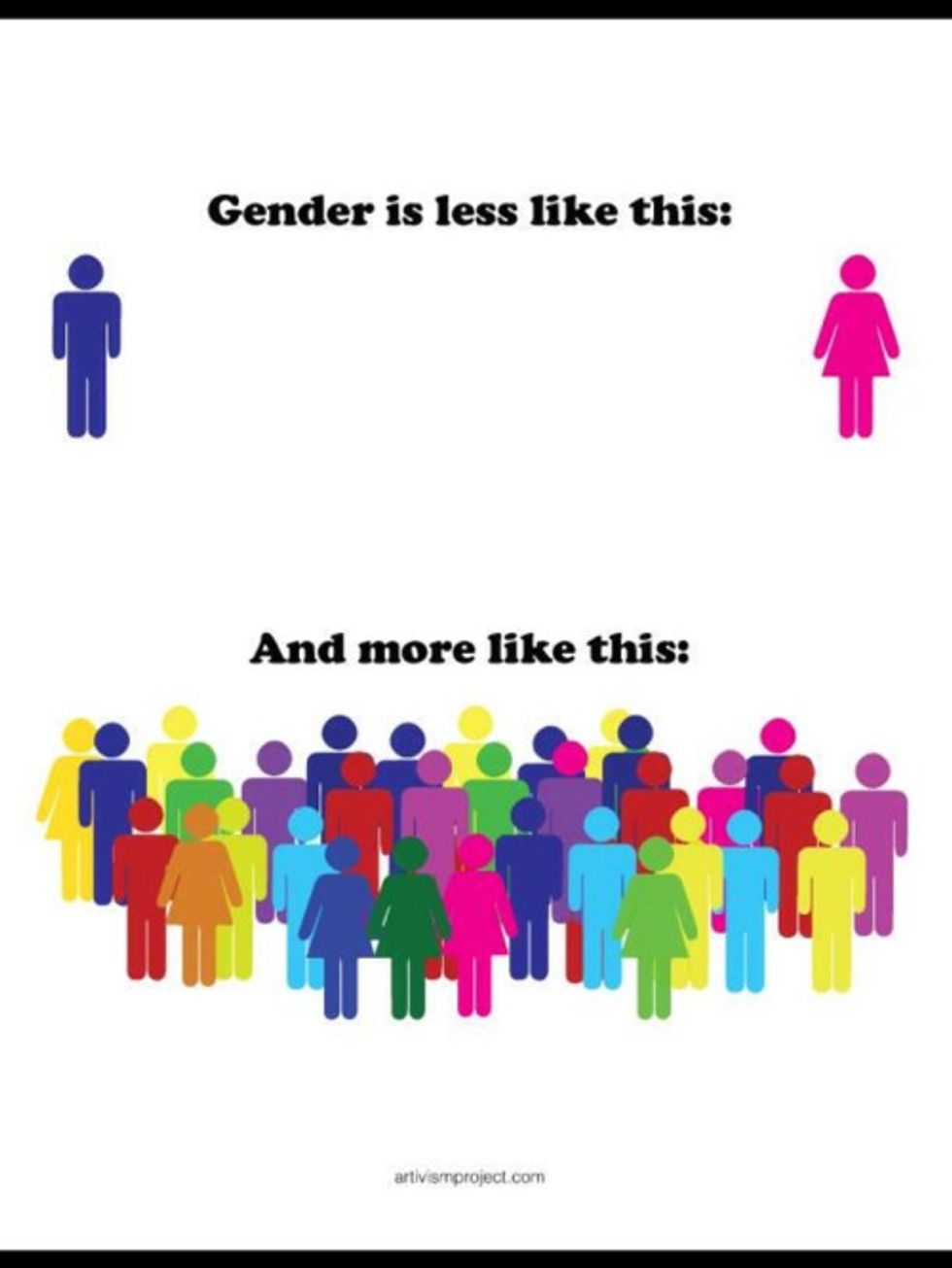On Tuesday, Sara Kelly Keenan was the first known person in the United States to received a birth certificate with "intersex" labeled as her sex. Keenan was born with males genes, female genitalia and mixed internal reproductive organs: clearly not fitting into either of the male/female dichotomous categories. The change to the document is wonderful for Sara, who will finally have an accurate birth certificate. This news also provides an opportunity for an important discussion about binaries and social construction.
While it is my understanding from doing a brief Internet search that most if not all birth certificates state one's "sex" rather than one's "gender," many news articles are reporting that Sara's gender was changed on the document. Understanding the difference between sex and gender is important.
Sex is based upon your genes: your genitals. Sex is commonly understood as having two options, female or male, but as Sara's case demonstrates, those aren't the only options. In fact, a researcher from Brown University estimates that one in 100 people are born with bodies that differ from the standard male or female definitions. That's a lot. Oftentimes, people who fall into this category will receive surgery in order make their genitals appear more like one of the two recognized sexes. Doctors and parents are thus assigning a child a sex that they do not biologically fit and unnecessarily performing cosmetic surgery on an infant with no knowledge of what this child would want.
As we have seen, there are more than two possible "sexes," and quite frankly, aside from an unwillingness to accept that what you have learned is wrong, I am baffled as to why this isn't universally accepted. The evidence is clear.
Gender, on the other hand, has nothing to do with your genetic makeup. It's socially constructed. Most people understand gender as being connected to one's sex, but in reality, humans have arbitrarily decided upon a gender binary. You're either a boy or a girl. But why?
If so many people are born intersex, then clearly a strict gender binary - boy or girl and that's it - isn't tied to one's sex. In fact, in other cultures there are more than two accepted genders. So then, what is gender?
The answer, from how we understand it, is that gender is a description of how we act, feel and think, or how people believe we should act, feel and think based upon our sex. But that truly doesn't make sense. There is no reason that having two X chromosomes makes you like certain colors, favor fashion over sports, desire to be submissive in relationships or feel inclined to shave your legs. The connection simply isn't there. Even more so, there is no reason that someone's personality and characteristics can or should be summed up by only one of two categories. With so many people on this planet, how on earth could we only be one of two things?
Why do we need gender categories? Why do we need to label each other in this way?
There is no genetic phenomena that assigns anyone a gender. People with a penis may tend to generally act in certain ways, but that's often just because they've been trained to. Just take a look at children's toys and you will see that gender is taught from the moment children are born.
Of course, our genes can affect our personality, our urges and our preferences. But not anywhere near to the extent that they would need to for a gender binary to make sense. Try to make the case that the majority of people with XY chromosomes have a natural inclination to be less emotional than those with XX chromosomes, and any good doctor would tell you that that's BS. For the most part, it's all nurture. It's all how we train each other.
Gender is socially constructed. It's made up. It doesn't exist. Like race and sexuality (tune in later for more information about those) it's a completely arbitrary concept that does not exist outside of human minds. Perhaps humans in our society created it because it's easier to understand people in our heads when we can put them in one of two boxes. But why choose the easy (and incorrect) path when we can skip the labels and start to better understand the magnificent diversity between all people?












































